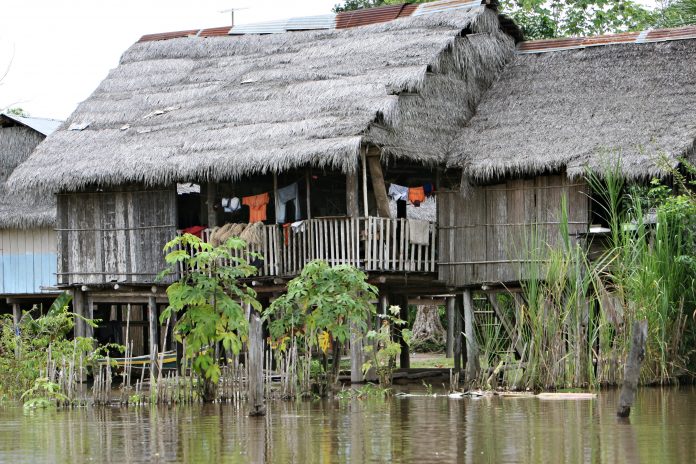The University of Helsinki reviews the impact of climate change on food pollution experienced by Indigenous people globally
This new research from the University of Helsinki discusses the exposure and particular vulnerability of Indigenous Peoples to climate problems, specifically environmental pollution. The impact of the pollution produced by the world is felt most in the global South, unequally distributing the problem to low-income and marginalised communities. On a global scale, the Lancet Commission on Pollution and Health concluded that more than 90% of pollution‐related deaths occur in low‐and-middle‐income countries, disproportionately to where pollution is most avidly created.
Dr. Álvaro Fernández-Llamazares, from the Faculty of Biological and Environmental Sciences, who led the study said:
“All the literature reviewed provides clear evidence that Indigenous Peoples are largely and heavily affected by polluting activities both through their exposure and vulnerability, and that much of this pollution is linked to broader patterns of colonization.
“However, we also note that, all over the world, Indigenous Peoples are developing innovative strategies to limit, abate or stop ongoing pollution and fighting to prevent it from the outset”.
Why does pollution impact Indigenous communities?
The study reviewed more than 680 different publications to highlight broad patterns of all the documented impacts of environmental pollution among Indigenous groups from all inhabited continents. The authors found out that most pollution-related health impacts documented among Indigenous Peoples are mediated through the consumption of polluted water and food, including wild foods obtained through hunting, fishing, and gathering. Because activities associated with collecting country foods generally serve important community roles, concerns associated to pollution regarding the consumption of wild foods can also impact these practices. Pollution can result in fear of consuming traditional wild foods and foster increased reliance on nutrient poor and expensive market foods, often increasing the risk of malnutrition and chronic diseases.
Dr. Álvaro Fernández-Llamazares said:
“While the number of studies examining the impacts of environmental pollution upon Indigenous Peoples is growing, most of this research is isolated and fragmented across disciplines and geographic regions.
“In fact, few efforts have cut across disciplinary topics and/or regions, and until today there was no global review mapping out the worldwide impacts of environmental pollution on Indigenous Peoples”.
The literature review documents several pathways in which Indigenous Peoples are contributing to bring pollution to levels that are not detrimental to human health and ecosystem functioning. Such strategies include social mobilization, blockades, cultural resistance camps, global policy advocacy litigation processes to hold pollutants into account or participatory monitoring, among others.
What can be done?
Fernández-Llamazares further said:
“During my time in the field, I have been confronted with the tragic reality of the destruction of the largest standing tropical rainforests of our planet. For example, Amazonia often seemed to me like a grand chessboard where the fate of our world is being written.”











